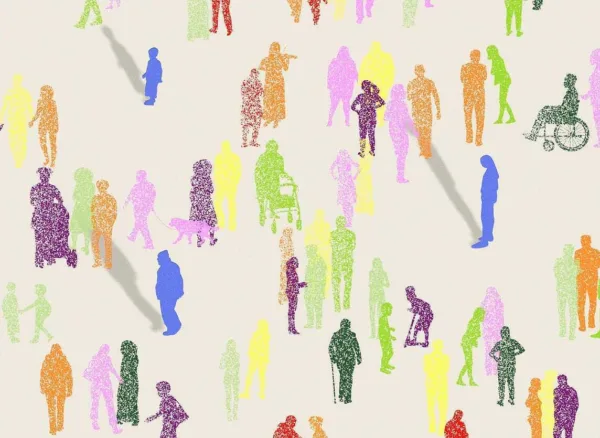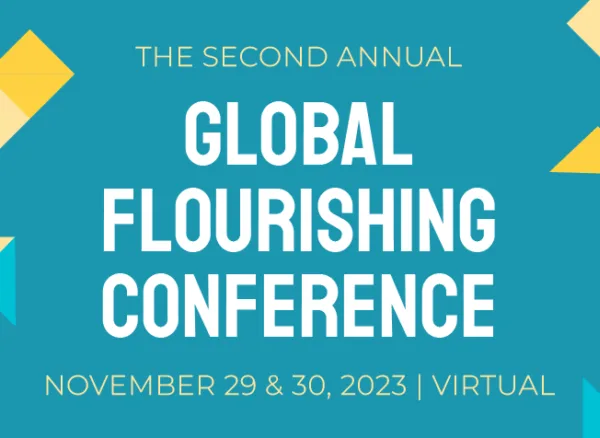Menu

As digitalization and globalization increases, so does humanity's individual and collective capacity to flourish. But with these advances, as Andreas Schleicher, Director for Education and Skills, OECD reminds us, our lives have become more complex. The disconnect between economic potential and reality, between the wealthy and the poor, and between technological possibilities and social needs has become more apparent.
"We should never underestimate the role that knowledge and the values of people play in social and economic in cultural development," Schleicher says in a presentation at Templeton World Charity Foundation’s Global Scientific Conference on Human Flourishing. To promote flourishing in our learning communities, Schleicher says we need to update educational laws, regulations, and structures around the world to be more holistic. Education is no longer just about teaching students subjects in silos. It's about building social capital by encouraging character strength development like compassion, resilience, and other traits that engender flourishing. As Schleicher puts it, "success in education today is about building curiosity, and opening minds."
Giving learners more agency over their education will better prepare all of us for the future. Students are poised to master content when schools help students learn to be "autonomous in their thinking, and to develop an identity that is aware of the pluralism of modern living, at work, at home, and in the community," Schleicher says. Integrating different fields of knowledge and a focus on collaboration and interdependence will help learners develop a reliable compass and the tools needed to navigate the world. It's also key that we help learners develop a "good understanding of how other people live in different cultures and different traditions and how others think." One way to do this, says Schleicher, is to "design learning environments and communities that are not clients of education, but are resources for learning opportunities." He sees this being accomplished through leadership built around a shared global narrative for education. This may be a difficult task without a uniting principle. "I often ask myself how the climate movement was able to build momentum in an area where the political economy of change is even more difficult than in education. Maybe the answer is that the climate community has been able to come together to agree on its North Star – the 'Net Zero' agenda. We don't have a 'Net Zero' in education. Yet. And that's why we see no coherence in education agendas and little fidelity in educational implementation. The concept of human flourishing could really become the 'Net Zero of Education.'"
Reacting to Schleicher's speech, Pilvi Torsti, Finland's Former State Secretary in the Ministry of Education and Culture, agrees that a common vision is needed, and feels that transforming education is crucial to our future wellbeing as we work to overcome climate concerns, inequality, and mental health issues. "The current systems are not serving the world well enough for us to to go with them towards the future that we owe our young generations. And this is particularly true when we look at the whole planet," says Torsti, noting that populations of young people are highest in countries with low-income or middle-income economies. One of the challenges she points to is the amount of time it takes to enact systemic changes. It can take at least one generation even at local levels. Moving from national agendas for education to a global consensus is a major transformation that will require extensive resources and time. However, Torsti sees hope in the way that the world leaders like OECD for guidance to start comparing proven ideas for building an educational ecosystem with flourishing at its center.
The Happy School Project is one such example. It's been successfully deployed in Vietnam, Switzerland, and Bhutan. The project focuses on the happiness and wellbeing of young people, and is based on "three modes of care." The first mode is children learning to take good care of themselves. "Care being self-knowledge, self-understanding, and so on," explains Tho Ha Vinh of Eurasia Learning Institute For Happiness and Wellbeing. The second mode is taking care of others and society by using social and emotional skills. "The third one is taking care of our beautiful and fragile planet. I believe that these three modes of care could be the seed of developing a national culture that brings human flourishing about."
Torsti points to Singapore's Values in Action as another example of a flourishing-based education program, where the curriculum is, in part, determined by students. It's based around the idea of service as a way to encourage character strength. Students work with elderly people to try to understand others' issues and needs, and are then encouraged to develop their own suggestions for how they might assist in enhancing the community. "That's an example of an innovation that I would push forward, because through that kind of service orientation, you can address issues such as wellbeing, climate change, the ethics of digitalization, or whatever issues interest the students," says Torsti.
A third example of human flourishing's role in education is described by Charles Kigundi Odong of Project Shelter Wakadogo. The school currently serves children who would normally be out of school due to poverty, lack of schools and rural remoteness. He shares some of the ways his school has been able to overcome adversity in Uganda, and how they are using that experience to become an inspiration to others. "When Project Shelter Wakadogo's school was founded, northern Uganda [was emerging from nearly 25 years of] civil war. It is one of the adversities that we overcame," says Odong. "Followed by COVID, we were not able to do any online learning, because of lack of computer knowledge and lack of resources in the community. So our teachers embarked into moving door-to-door to teach children in a smaller group. Moving into door-to-door—a teacher and maybe one student in one home, and then another one in a different home—has really given us a good opportunity to share with our colleagues who live in a similar situation like the northern part of Uganda, which is very far much behind other parts of the world. Every time we can learn from other colleagues we get new ideas." Odong hopes educators in Uganda and around the world can attend and organize more dialogues like those that took place at the Global Human Flourishing Conference. He muses on the idea of having district educational leaders who can help teachers be "ambassadors" for learning different approaches to promote flourishing through education.
Tho Ha Vinh also sees the importance of educators paving the way toward this new paradigm of learning. He says "The most fundamental building block is the teachers themselves... the teachers have to embody the qualities of flourishing. You cannot just preach it, you have to be it. Being a teacher should not be the last choice if you couldn't if you didn't manage to go into a more prestigious kind of studies... Teachers are the ones that are really building the future."
Play the above video to hear Innovation in Education: Reorientation for Future Human Flourishing, a segment from The First Global Scientific Conference on Human Flourishing, organized by Templeton World Charity Foundation.
Featuring:
Andreas Schleicher, Director for the Directorate of Education and Skills, Organization for Economic Co-operation and Development (OECD)
Pilvi Torsti, Former State Secretary in the Ministry of Education and Culture, Finland
Tho Ha Vinh, Founder, Eurasia Learning Institute For Happiness and Wellbeing
Charles Kigundi Odong, Headteacher, Project Shelter Wakadogo
Hosted by:
Redi Tlhabi, Broadcasting Journalist
Visit HumanFlourishing.org to learn more.




